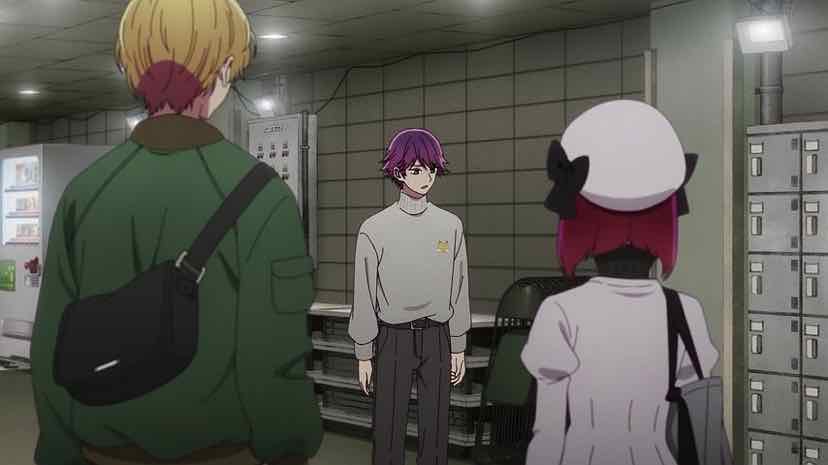 If there’s anything that’s absolutely clear to me after a season and two episodes of Oshi no Ko, it’s this – the series is at its best when it’s totally unvarnished. And it’s easier for it to be unvarnished early on in the season/arc, while Akasaka is still setting up the conflicts in the story. Once he begins to pull his punches and turn apologist (which he inevitably will as far as I’m concerned) things start to go downhill pretty quickly. It happened once, and I’ll be very surprised if it doesn’t happen this time as well.
If there’s anything that’s absolutely clear to me after a season and two episodes of Oshi no Ko, it’s this – the series is at its best when it’s totally unvarnished. And it’s easier for it to be unvarnished early on in the season/arc, while Akasaka is still setting up the conflicts in the story. Once he begins to pull his punches and turn apologist (which he inevitably will as far as I’m concerned) things start to go downhill pretty quickly. It happened once, and I’ll be very surprised if it doesn’t happen this time as well.
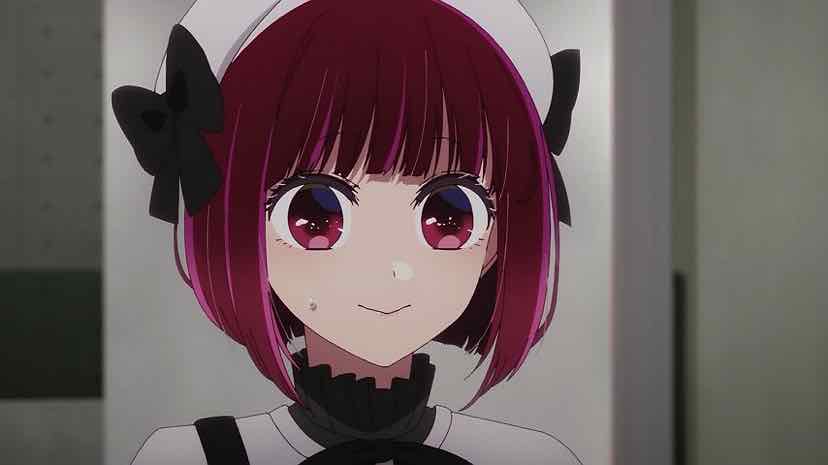 So, enjoy it while it lasts I say. And if we’re lucky it may last several episodes, so that’s nothing to dismiss so easily. As I said last week he’s very good at this “how the sausage is made” material. There’s no questioning his ability to do this – he’s proved that in the most straightforward way possible. It’s his willingness to do it that’s the problem. For now at least things are all good, because if you have an interest in the gritty details of how productions like this happen (as I do), this is very engaging stuff indeed.
So, enjoy it while it lasts I say. And if we’re lucky it may last several episodes, so that’s nothing to dismiss so easily. As I said last week he’s very good at this “how the sausage is made” material. There’s no questioning his ability to do this – he’s proved that in the most straightforward way possible. It’s his willingness to do it that’s the problem. For now at least things are all good, because if you have an interest in the gritty details of how productions like this happen (as I do), this is very engaging stuff indeed.
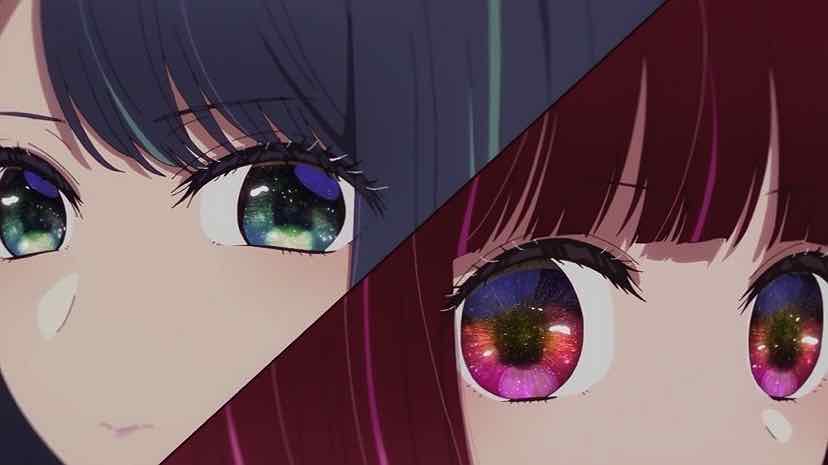 As the mangaka, Akasaka-sensei is in the position of Abiko-sensei in the “Tokyo Blade” debacle. I don’t know of any specific reason he might feel slighted by adaptations of his material, but he has had to hand it over to someone else to transition it to the screen (I’m not aware of a stage version of any of his works – though Kaguya-sama did get a live-action series – but that may have happened too). That said, I appreciate that he’s making a point of showing both sides of the process. In fact for me it’s Abiko who’s come off looking the worst so far, and it’s not even close.
As the mangaka, Akasaka-sensei is in the position of Abiko-sensei in the “Tokyo Blade” debacle. I don’t know of any specific reason he might feel slighted by adaptations of his material, but he has had to hand it over to someone else to transition it to the screen (I’m not aware of a stage version of any of his works – though Kaguya-sama did get a live-action series – but that may have happened too). That said, I appreciate that he’s making a point of showing both sides of the process. In fact for me it’s Abiko who’s come off looking the worst so far, and it’s not even close.
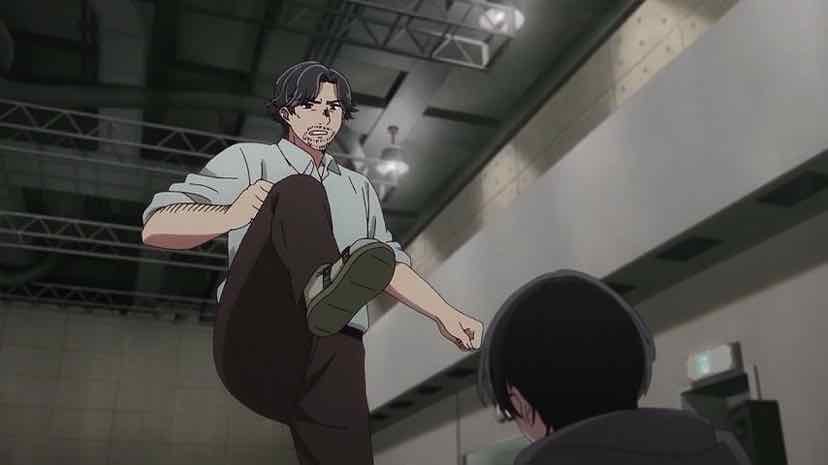 There are a lot of complicating factors with this production to begin with. You have three distinct groups of actors involved – the “Kaburagi group” (including Kana and Aqua) that the producer has brought in. The big agency names there for their box office appeal. And the “house” performers from Lala Lai who look down their noses at the others. So far that hasn’t proved a huge issue but the potential is always there. Especially given someone like Aqua who pretty much disdains theatre as a medium. I disagree with him in the broader sense, though I do have to say as far as 2.5D animanga stuff is concerned I think he’s basically right. This is a source of potential conflict between he and his “girlfriend” Akane (a Lala Lai) too of course.
There are a lot of complicating factors with this production to begin with. You have three distinct groups of actors involved – the “Kaburagi group” (including Kana and Aqua) that the producer has brought in. The big agency names there for their box office appeal. And the “house” performers from Lala Lai who look down their noses at the others. So far that hasn’t proved a huge issue but the potential is always there. Especially given someone like Aqua who pretty much disdains theatre as a medium. I disagree with him in the broader sense, though I do have to say as far as 2.5D animanga stuff is concerned I think he’s basically right. This is a source of potential conflict between he and his “girlfriend” Akane (a Lala Lai) too of course.
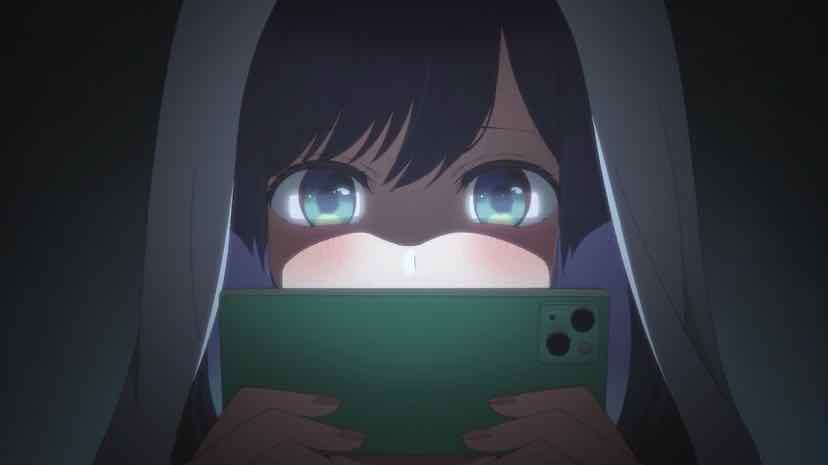 The big problem here is the Abiko has no social skills (as her former mangaka mentor notes) and no experience with the difficult dynamics of adaptation. In her defense she’s been complaining about the changes GOA-san made to the script all along, but because of the multiple layers of sycophancy between her and him, GOA never really gets her notes as written. He’s right of course – a stage play is extremely different from a manga. He’s doing his best to manage that, but in doing so he’s lost the most important member of the pre-opening audience (Abiko). She has no idea he never got her notes – she just thinks he’s a Philistine with no sense of her work.
The big problem here is the Abiko has no social skills (as her former mangaka mentor notes) and no experience with the difficult dynamics of adaptation. In her defense she’s been complaining about the changes GOA-san made to the script all along, but because of the multiple layers of sycophancy between her and him, GOA never really gets her notes as written. He’s right of course – a stage play is extremely different from a manga. He’s doing his best to manage that, but in doing so he’s lost the most important member of the pre-opening audience (Abiko). She has no idea he never got her notes – she just thinks he’s a Philistine with no sense of her work.
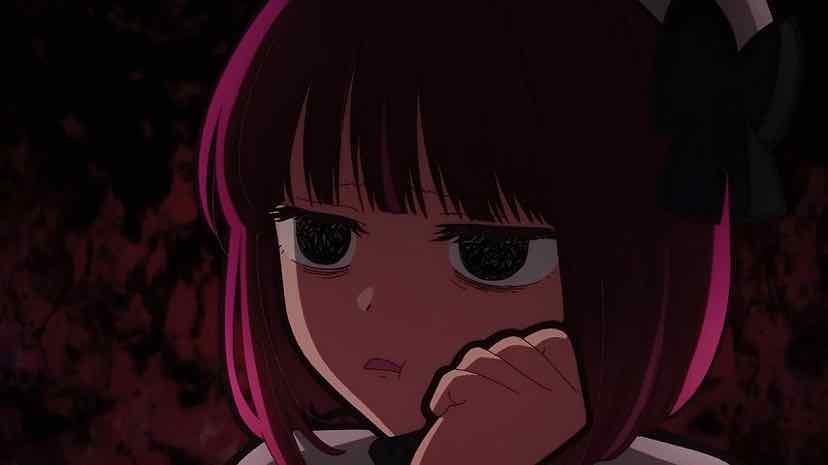 GOA is the victim here, no doubt (though at least he still gets paid). I feel for him, especially when the producer politely insists that he keep his name on the credits ever after being removed from the project (so Abiko can rewrite the entire script). I don’t know a tremendous amount about the specific dynamics of such things, but it’s logical to assume the adaptation’s screenwriter is a punching bag when manga are adapted into- well, anything. It’s got to be a pretty thankless job, and I would imagine cases where the screenwriter works closely and cooperatively with the mangaka are pretty rare. And “Tokyo Blade” certainly isn’t one of them.
GOA is the victim here, no doubt (though at least he still gets paid). I feel for him, especially when the producer politely insists that he keep his name on the credits ever after being removed from the project (so Abiko can rewrite the entire script). I don’t know a tremendous amount about the specific dynamics of such things, but it’s logical to assume the adaptation’s screenwriter is a punching bag when manga are adapted into- well, anything. It’s got to be a pretty thankless job, and I would imagine cases where the screenwriter works closely and cooperatively with the mangaka are pretty rare. And “Tokyo Blade” certainly isn’t one of them.
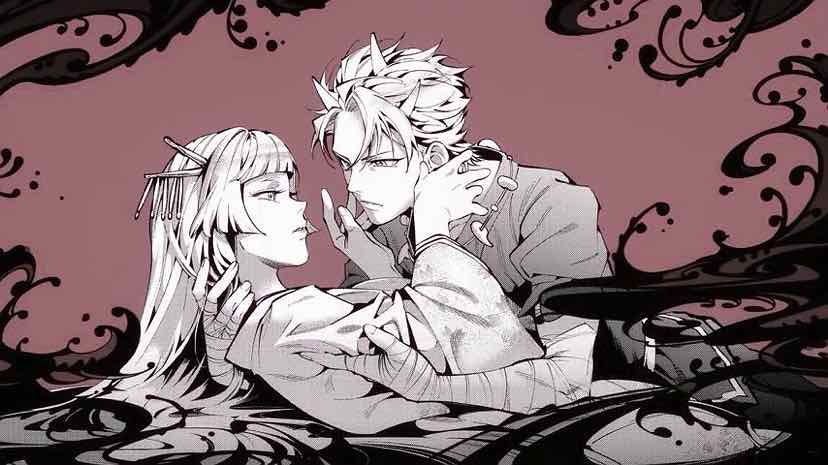 The most likely scenario is that Abiko’s interference is going to turn this production into a disaster – though this is a tempting opportunity for the Akasaka apologist streak to reassert itself. Not only is totally rewriting the script three weeks (less, actually) before opening night going to wreak havoc with the schedule, she has no idea what will work in a “stage around” play. That’s not a huge deal for one of the actors (and Akane is going to try and rectify Aqua’s willful ignorance on that score), but it is a probably a deal-breaker for the person writing the script.
The most likely scenario is that Abiko’s interference is going to turn this production into a disaster – though this is a tempting opportunity for the Akasaka apologist streak to reassert itself. Not only is totally rewriting the script three weeks (less, actually) before opening night going to wreak havoc with the schedule, she has no idea what will work in a “stage around” play. That’s not a huge deal for one of the actors (and Akane is going to try and rectify Aqua’s willful ignorance on that score), but it is a probably a deal-breaker for the person writing the script.


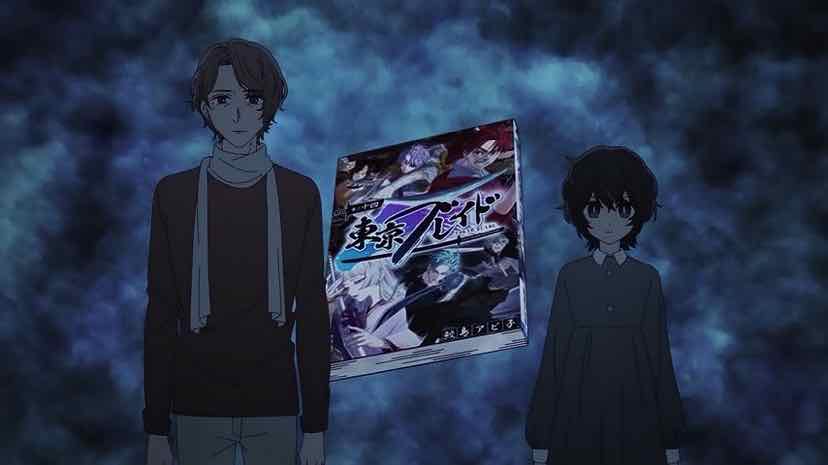
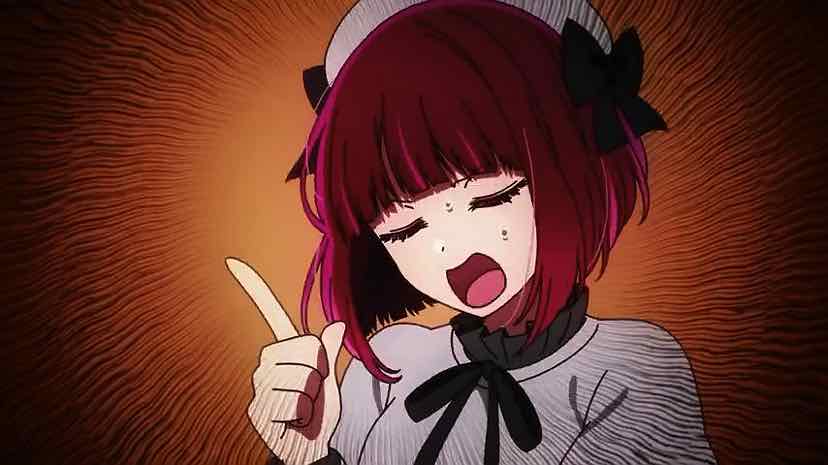
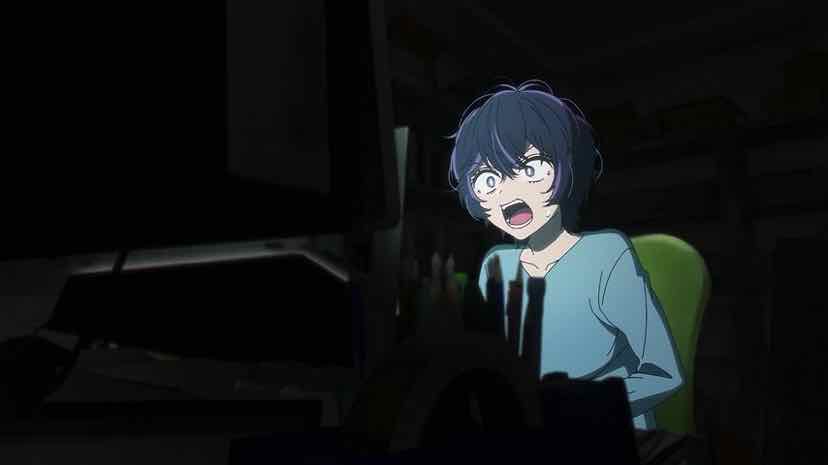
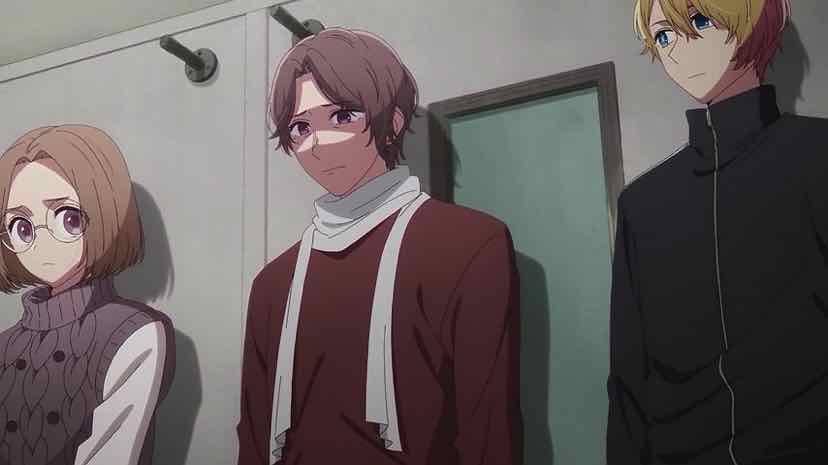
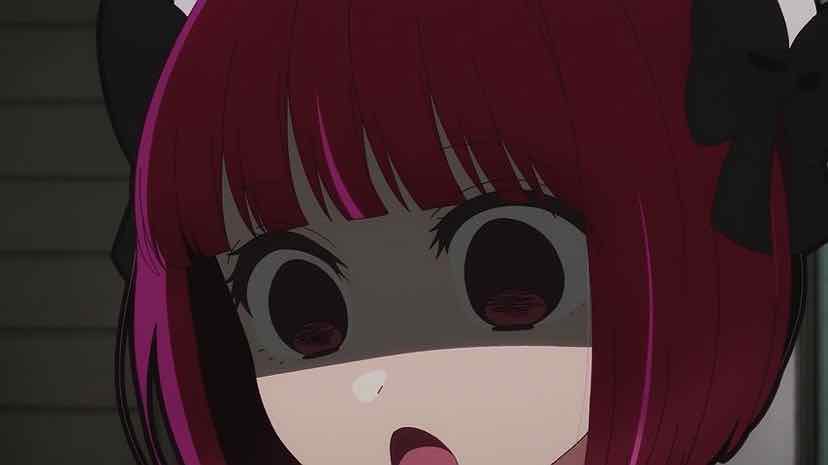
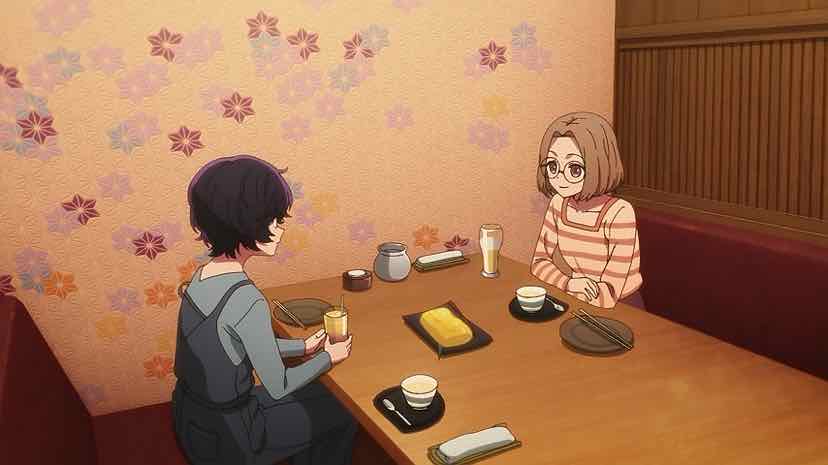
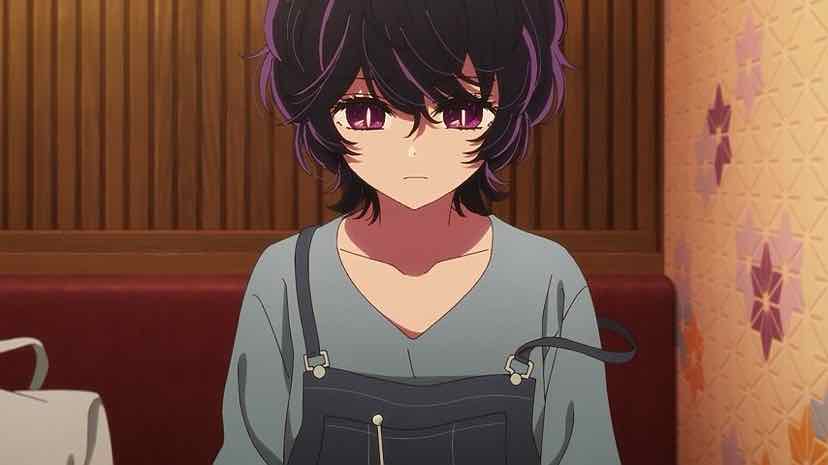
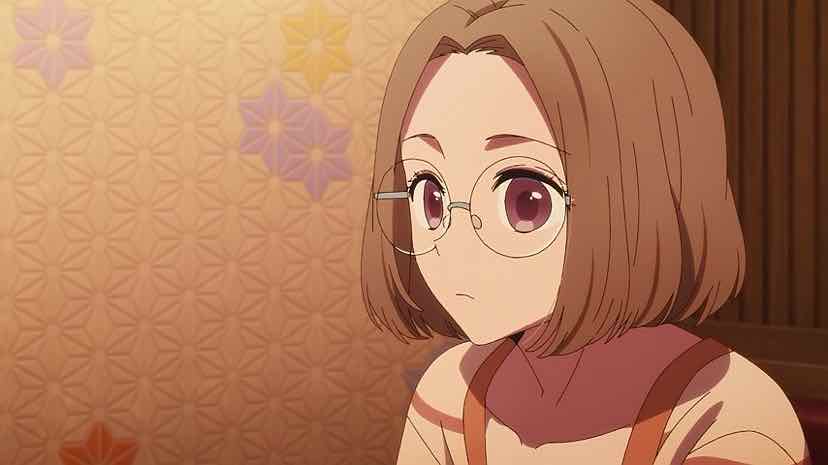
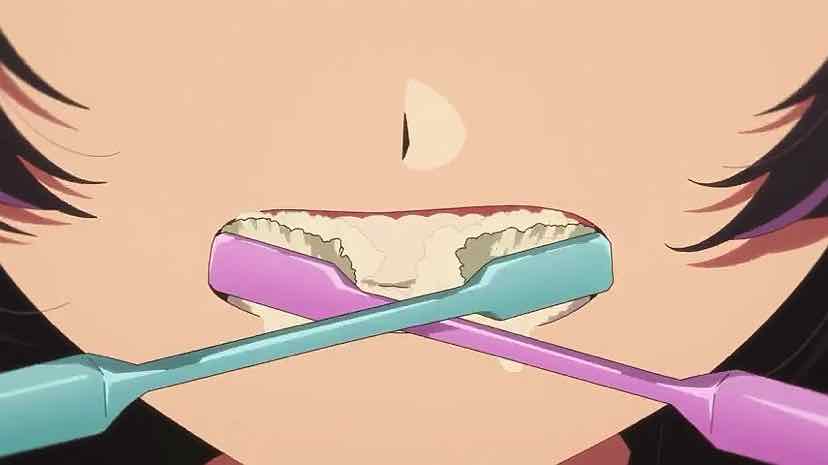
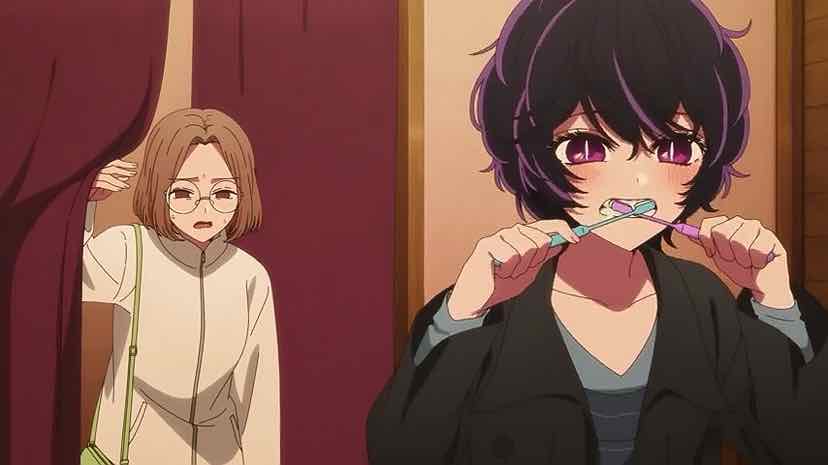
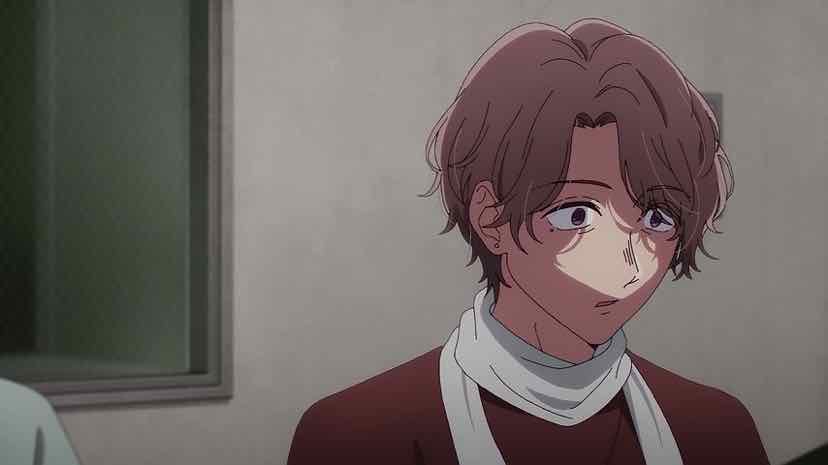
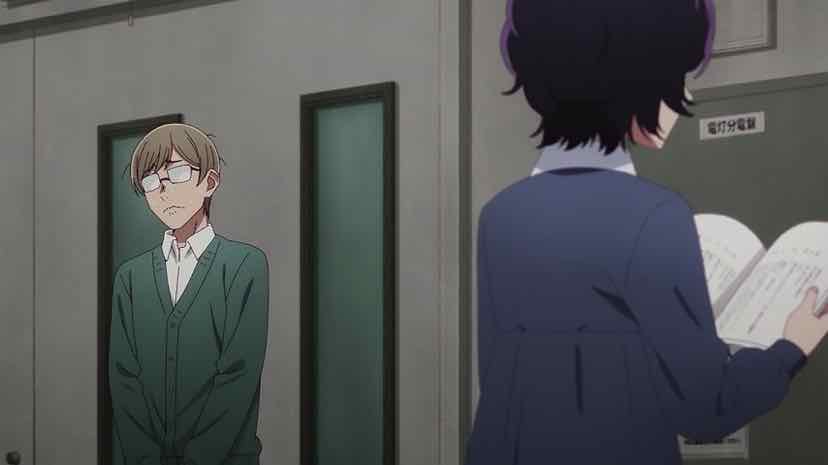
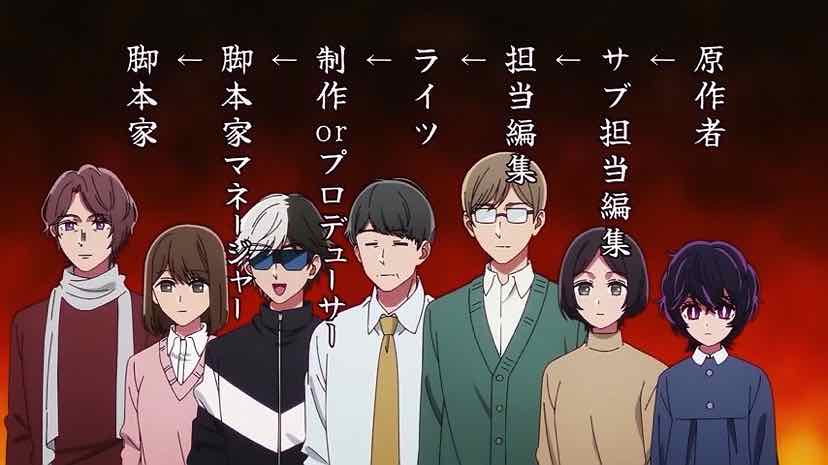
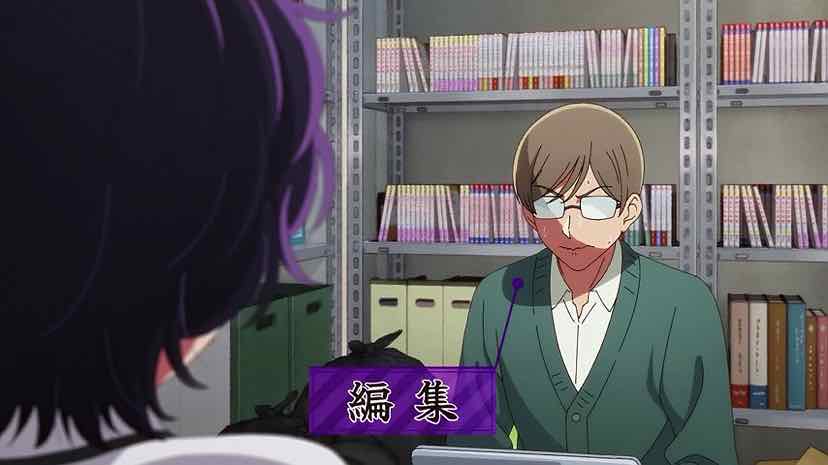
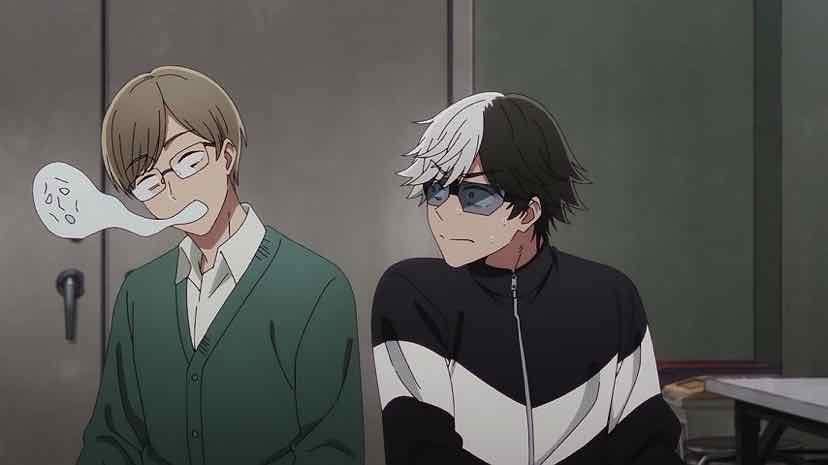
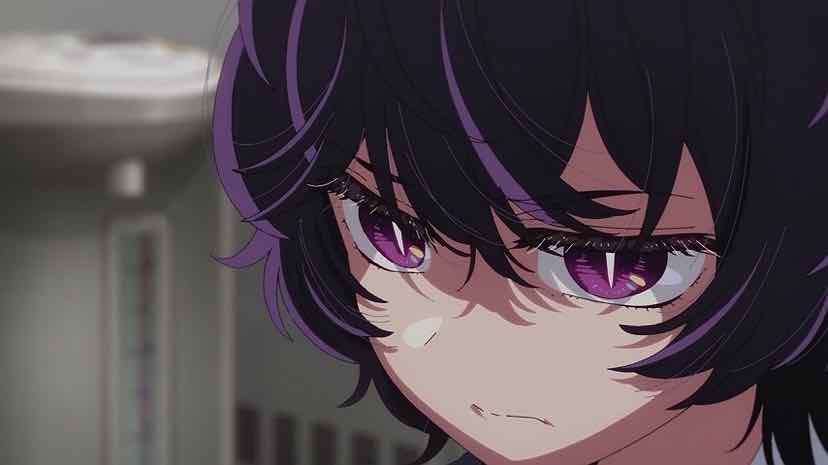
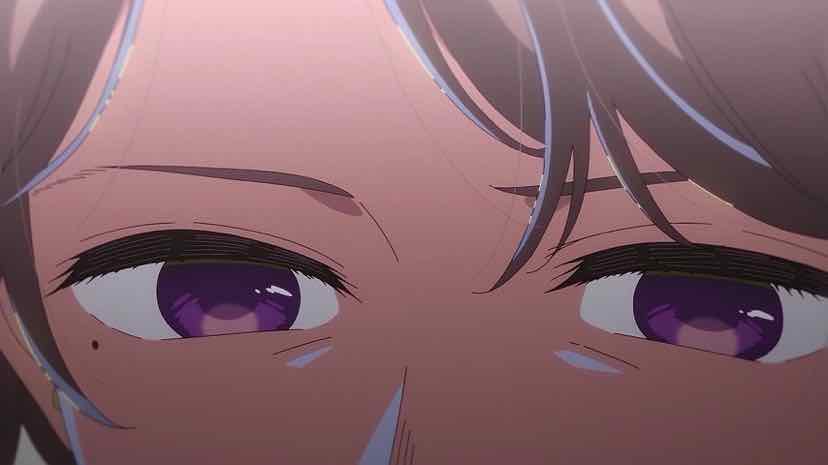
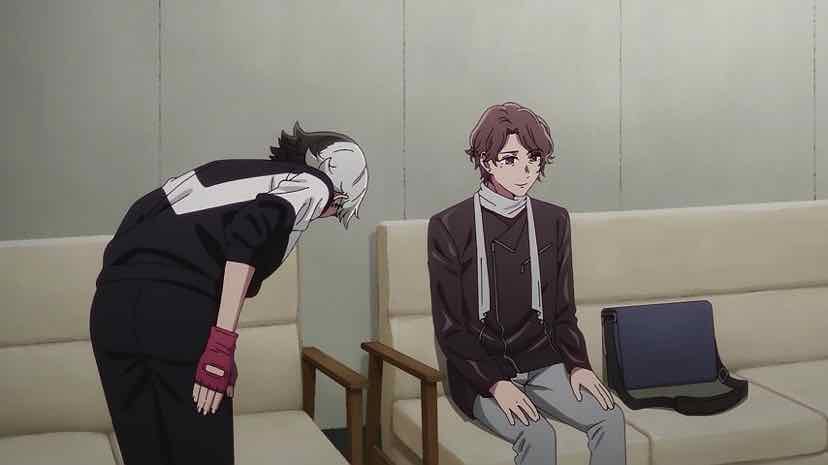
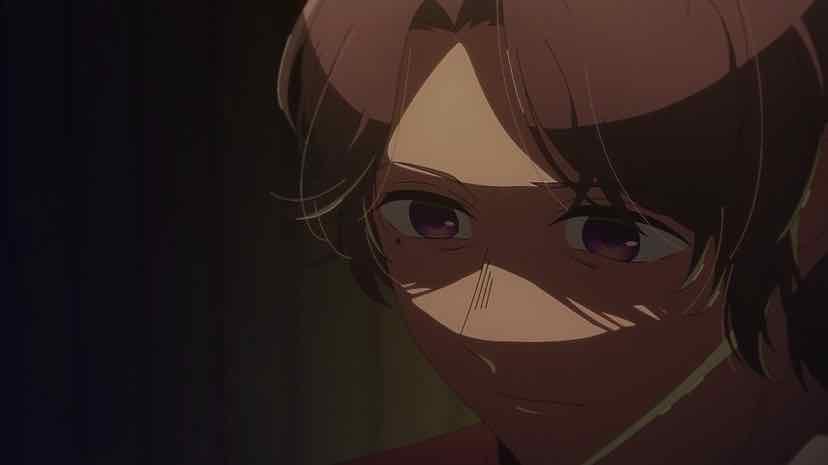
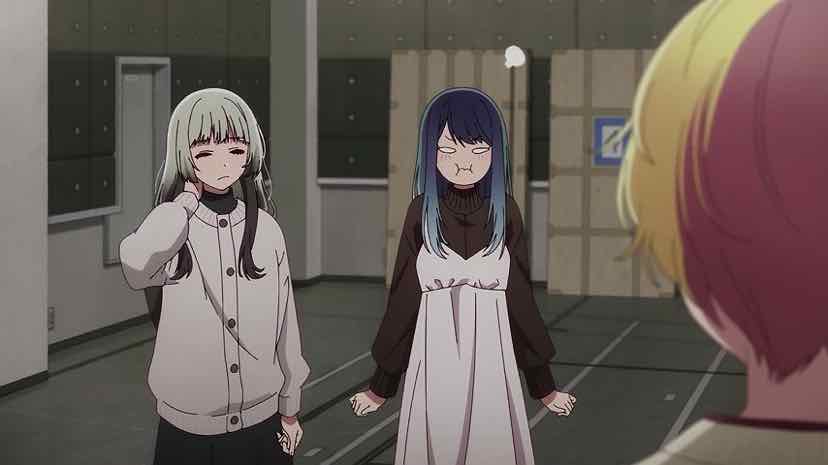
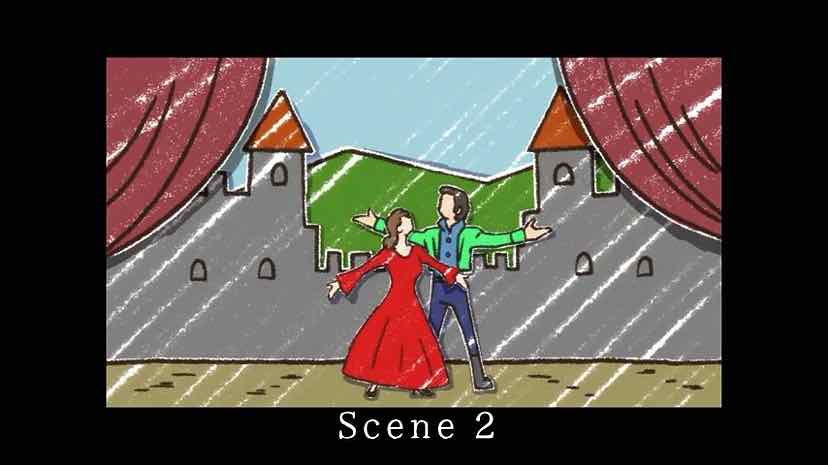
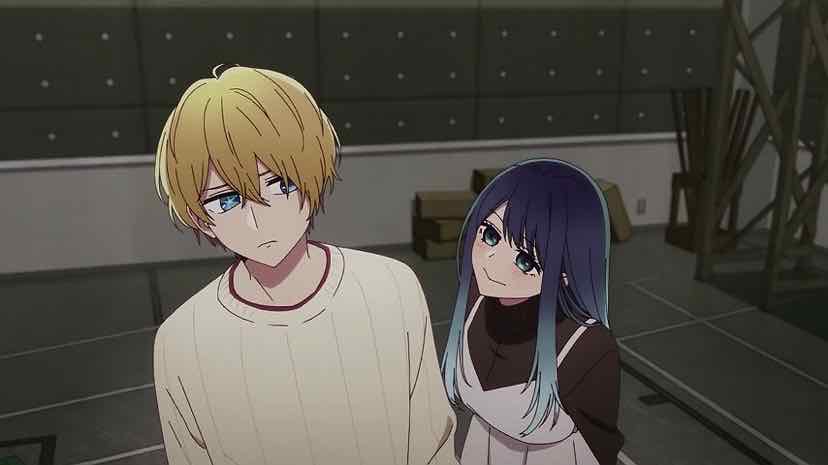
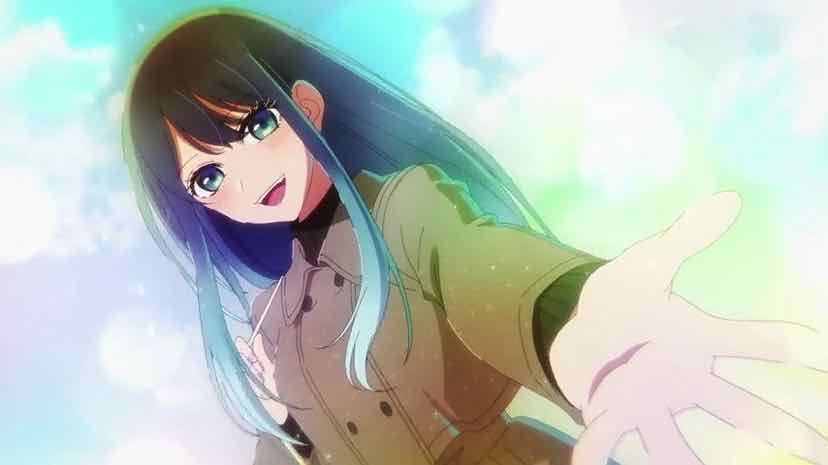
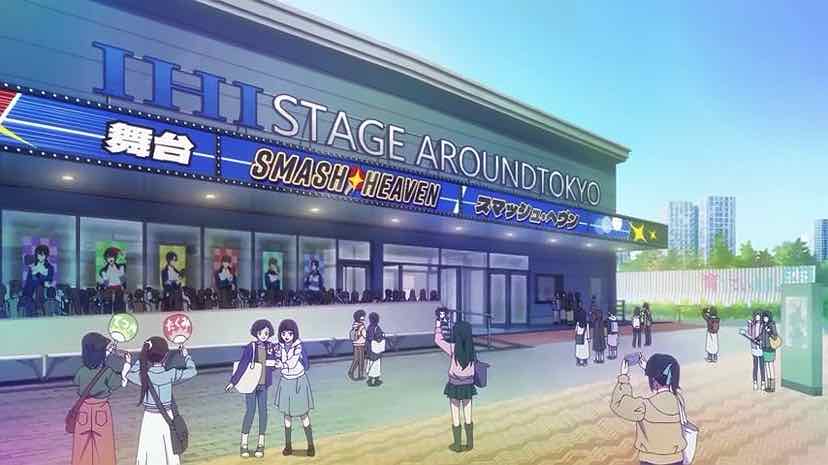
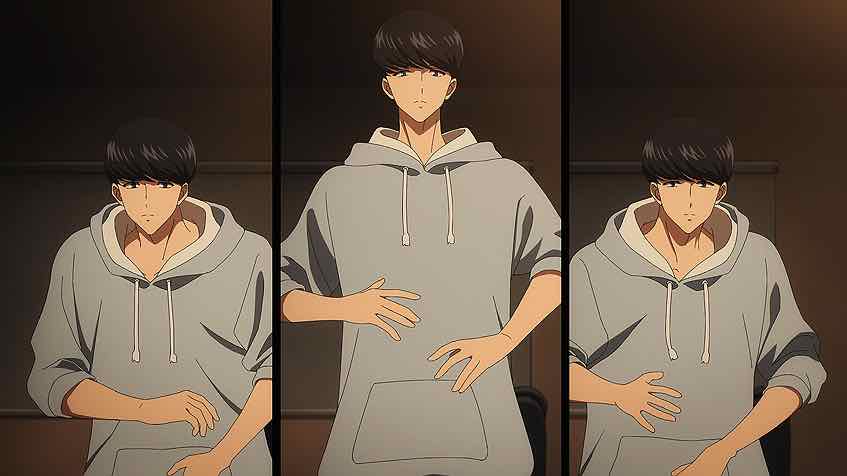
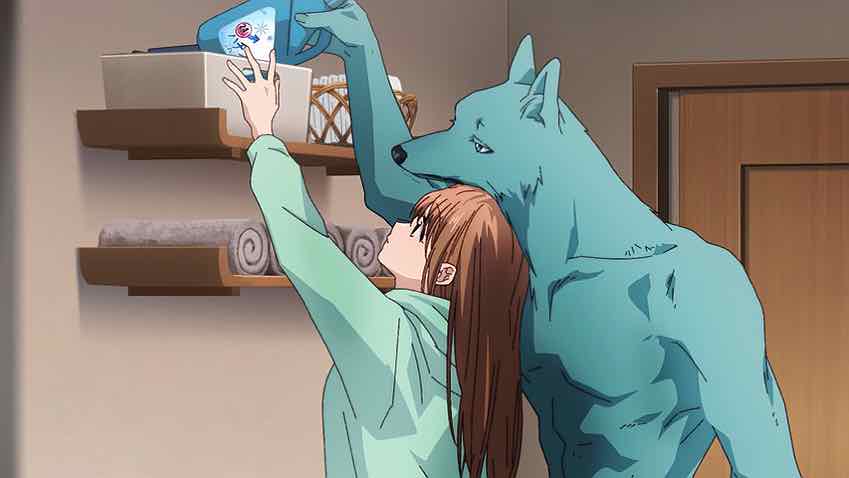
Collectr
July 11, 2024 at 9:29 pmIn Akibo-sensei’s defense (for the moment), she probably had no idea how many people got to “edit” her comments before they reached GOA. The sycophancy culture in business, not just in Japan – no one wants to confront a superior or bring bad news – means that each person on the telephone game watered down her comments, to the point of meaninglessness. The simplest solution – that GOA talks to Akibo directly or through one sympathetic intermediary – was never considered.
As you say, the next few episodes are a Rorschach test for the (real) mangaka. If the rewrite totally succeeds, the series is fantasy wish fulfillment. If it destroys the production, the series is committed to eviscerating the industry. And if there’s a compromise – like Akibo and GOA working together in some way… well, I don’t know. Maybe that the production going forward successfully is just necessary for the plot?
Joshua
July 11, 2024 at 11:04 pmIt’s totally going to be the “third option” for sure, a cop out to say that “Hey, the business is broken, but there are still good people working in it so you can’t burn everything down, it’s all totally gray guys (except the folks that it really wants to antagonize and valorize)!”. I guess the reason why this arc is so highly regarded is because it’s one of these industry commentaries that isn’t hyperbolic “ripped from the headlines” sensationalism used solely to advance Aqua’s increasingly convoluted revenge scheme. Although I find it ironic that for this arc to go on about the difficulties of adaptations and deviating from the source material that this barely even deviates from the material at all.
Not to mention this arc is basically Doga Kobo’s excuse for an overindulgent production where they might use Tokyo Blade as an excuse to blur fiction and reality (i.e. dramatize the stage play and turn into basically a KnY-like visually).
Simone
July 12, 2024 at 2:06 amI mean, what would “burning it all down” look like? People just… stop doing theater? Everyone in the industry gets fired and forever banned from getting back into it, and completely new people with a fresh outlook get tasked of doing this job? None of these things are remotely realistic. In practice change happens from whatever is there before – it can happen slower or faster, driven by different kinds of individuals and organization, but “change from the inside” for things like these isn’t the most moderate option, it’s the *only* option. The performing arts aren’t some kind of state organization that could be conceivably deeply restructured from the top down because there is no unified top. All you can hope for is that someone with good practices has enough success to then spread those practices around and eventually reshape the culture, while simultaneously the public endorses them and votes with their wallet to support non-toxic companies.
Guardian Enzo
July 12, 2024 at 6:43 amSpeaking of toxic companies, Kodakawa bought Doga Kobo. Prepare for much despair.
Bob
July 11, 2024 at 9:31 pmIt was darkly amusing seeing the corporate telephone give GOA the exact opposite of Abiko’s message. One has to wonder how many productions got screwed over by such miscommunication. Let alone the competing interests from multiple parties. I’m reminded of Rick Riordan’s commentary on his tortuous experience with the Percy Jackson movies.
Raikou
July 11, 2024 at 9:58 pmThe side of production is really engaging as you said.
Back then Arakawa Hiromu were impressed with how Aikawa Sho created FMA 2003 script with only few chapters available for founding materials. That wasn’t the norm nowadays. Recent anime adaptations from manga mostly stick to word-by-word adaptation, the difference is whether they need to rush the materials or not
Aera
July 12, 2024 at 2:16 amI agree with you, to me Oshi no Ko is at its best when it fleshes out all the things behind the production of media and culture, with all the complications in it. Be it the idol culture, live actions, reality shows, stage play adaptations, and probably many others to come. As time goes by, I find myself less and less invested in Aqua’s revenge plan and I wish the show just remained the way it is now. I know it probably won’t, though. That’s why S1 let me down immensely as well.
I guess that’s why I don’t feel any particularly strong feelings for the characters as well. I might keep sticking around if Tokyo Blade Arc continues to be like this, but if it goes the same way as S1 did, I dunno if I want to watch the rest of the series.
Guardian Enzo
July 12, 2024 at 6:45 amPretty much where I’m at.
Vance
July 12, 2024 at 3:15 amGuardian Enzo, just ’cause you think this arc should be unvarnished criticism of the industry doesn’t mean that it was intended to be that way.
One of the reasons the One Piece live action adaptation was successful is ’cause Oda was directly involved to ensure his vision or intent as an author was presented correctly.
To think that your approach is the only way the material can be high-quality demonstrates that you want to push your worldview onto the show.
Abiko will probably turn out an inadequate script given the odds of her never having seen a theatre around play and having no knowledge of the medium is high, but that opens up the possibility of forcing her to work with a scripwriter, whether it be Goa, who was let go, or an outside scriptwriter.
Guardian Enzo
July 12, 2024 at 6:45 amWhat is “my approach” exactly? I must have missed the part of the post where I discussed that.
Vance
July 12, 2024 at 9:09 amWhen you said that the series is at its best unvarnished and that things go downhill when the mangaka goes apologist, I interpreted that you are implying approaching it completely unvarnished would be the best way to write this story. That is what I meant by your approach.
While I understand you have strong feelings of the negatives of the Japanese entertainment industry, I don’t think it was ever intended for that to be all Oshi no Ko is, and I believe Aqua’s journey as the protagonist is probably the real focus of the work.
We know from the first cour that Aqua after losing Ai has a tendency to view other people in terms of how much use they will be to him, which was made explicit when he remarked about how he could use Akane to gain insight to Ai or how he can use people with connections in the industry to find his birth father.
Even with Kana, Ai told his adoptive mother that he sees Kana as being the type to be easily manipulated into doing what she doesn’t want with a bit of pressure, but that is possibly a smokescreen that makes murky all of what he feels on the matter.
Why I say it’s a smokescreen is that Aqua saw how Kana used to be an extremely showboaty type of actress, and seeing that she had adjusted socially and learn to have people skills, lowering her acting performance to not draw people out of the experience with weaker performers showed that she had changed a lot from their younger days.
Seeing Kana fight so hard to support the models who were doing shitty acting to the detriment of herself when Kaburagi had no intent of letting her shine likely endeared her to Aqua, which is why he was intent on having Kana join his family’s idol group and approach her for a gane of catch to vent when he had a lot on his mind.
Even this season, we have Aqua remarking in his mind that he had no scenes with Kana until the end of the play, likely to show that Aqua would like more scenes with her. Thus, I believe there is enough circumstantial evidence from the anime to say that while he is focused on revenge now that the thought of sharing a life with Kana could eventually snap him out of revenge mode if were to realize how dangerous his goal of getting revenge might be if his birth father were to figure out his identity and that he is seeking revenge.
Thus, Oshi no Ko could be a coming of age story where Aqua eventually learns there are more important things than revenge and to value what he has in the present. Maybe that isn’t what you want from the story, but I suspect this is the reason why all of the projects Aqua have been in have been successes so far, and that would be to advance the plot and have him grow a passion for something he didn’t previously care for, which could lead to him having a good (and ethical based on how his projects have gone so far) career, showing that you never know what life has in store for you.
While I know you want an unvarnished criticism of an industry that treats most its staff members poorly, I believe the mangaka’s approach can still be high quality if there is enough thought into how everything builds up until the end.
Bel
July 14, 2024 at 11:54 pmJust speaking for myself, the movie-length first episode of the series had led me to believe that the rest of the show would be messier and more critical of the entertainment industry than what we ultimately got. The rest of the show didn’t really live up to the first impression I got. Maybe that’s on me for my misguided expectations.
I don’t mind if this ends up being a coming-of-age story for Aqua. But having watched season 1, I came away feeling that the mini arcs were resolved a little too neatly, and it’s always Aqua who came up with a solution, jumped in, pushed things along, and succeeded in his endeavour. I know he’s the POV character, but still. For me, the story lacks tension. Like right now with the conflict regarding the script. I fully expect Aqua to come up with some ingenious solution and save the production from collapsing. He comes off as a little too much of a wish fulfilment power fantasy protagonist than I would’ve liked. Perhaps I’ll be proven wrong in the future.